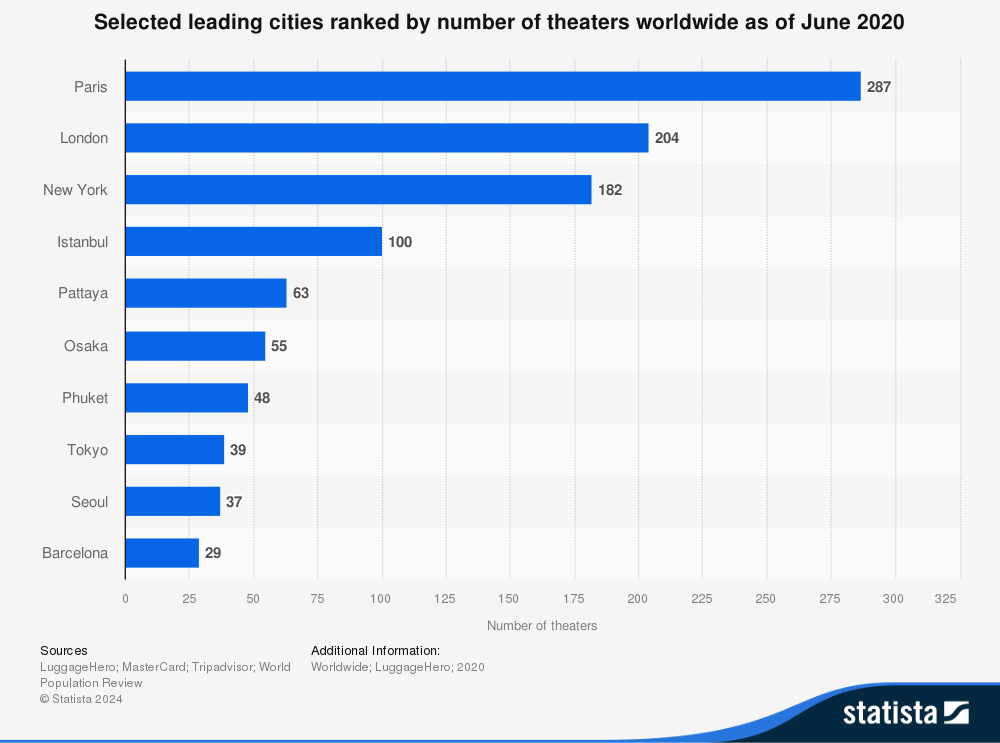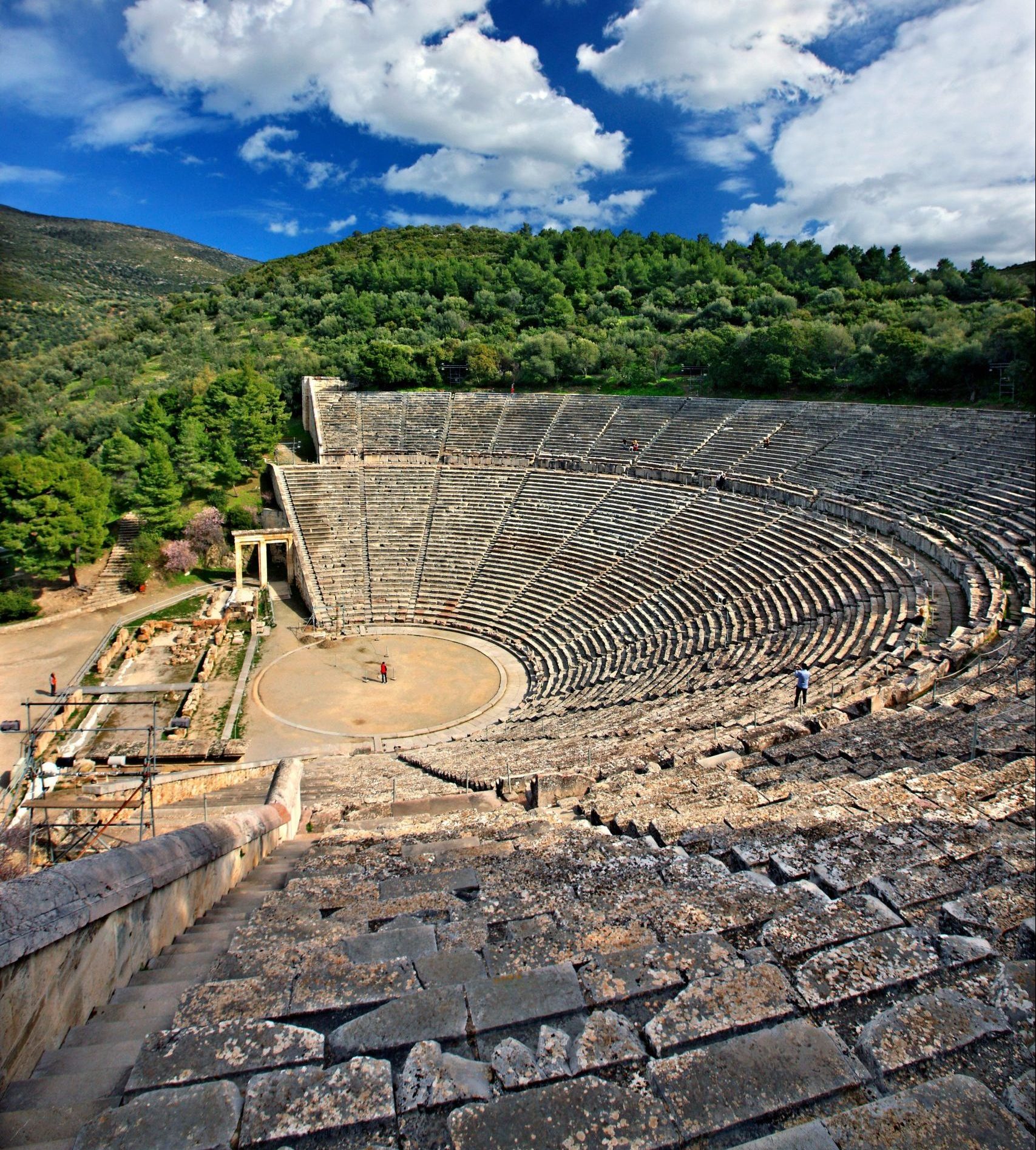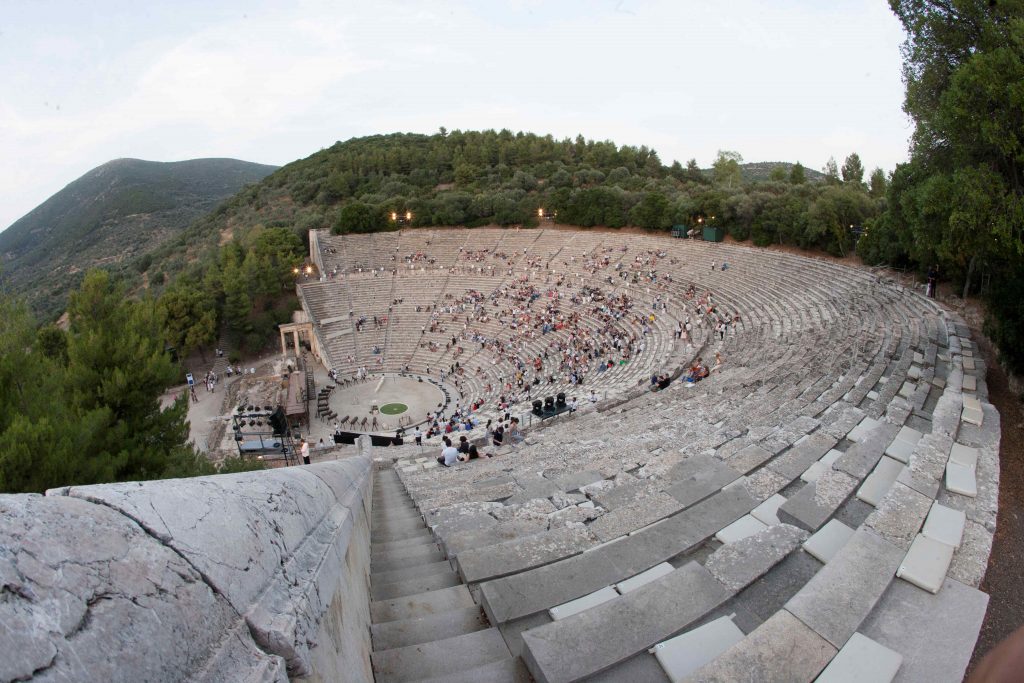“Can theatre hear the SOS call that our times are sending out, in a world of impoverished citizens, locked in cells of virtual reality, entrenched in their suffocating privacy?” This opening question sets the tone for the powerful message by Greek theatre director and educator Theodoros Terzopoulos, released today by the International Theatre Institute (ITI) in celebration of World Theatre Day, observed on March 27.
Since its creation in 1961, World Theatre Day has been marked with global events, the circulation of the World Theatre Day Message, and a focus on themes such as “Theatre and a Culture of Peace.” The message, penned each year by a prominent figure, is translated into over 50 languages and read before performances in theatres worldwide. This year, Terzopoulos’ message echoes a call for the theatre to reflect on the world’s current crises and its potential role in promoting peace.
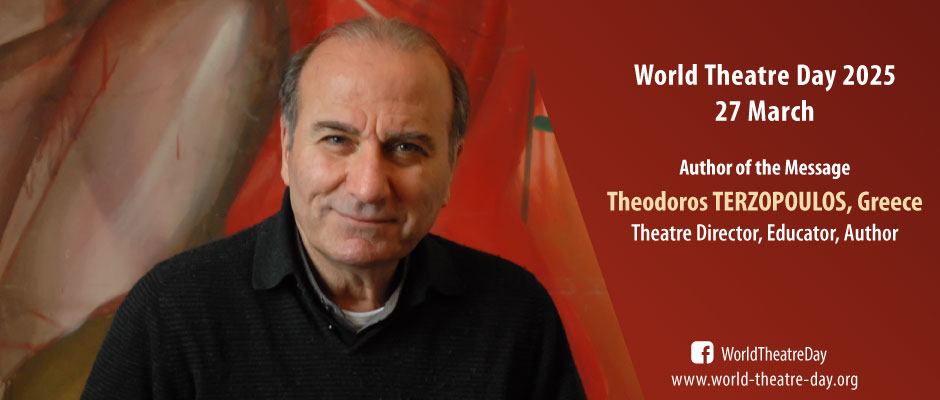
Terzopoulos is the second Greek figure to author the message, following poet and playwright Iakovos Kambanellis, who wrote it in 2001. His thought-provoking words are shared in theatres globally and are published in numerous media outlets.
About Theodoros Terzopoulos
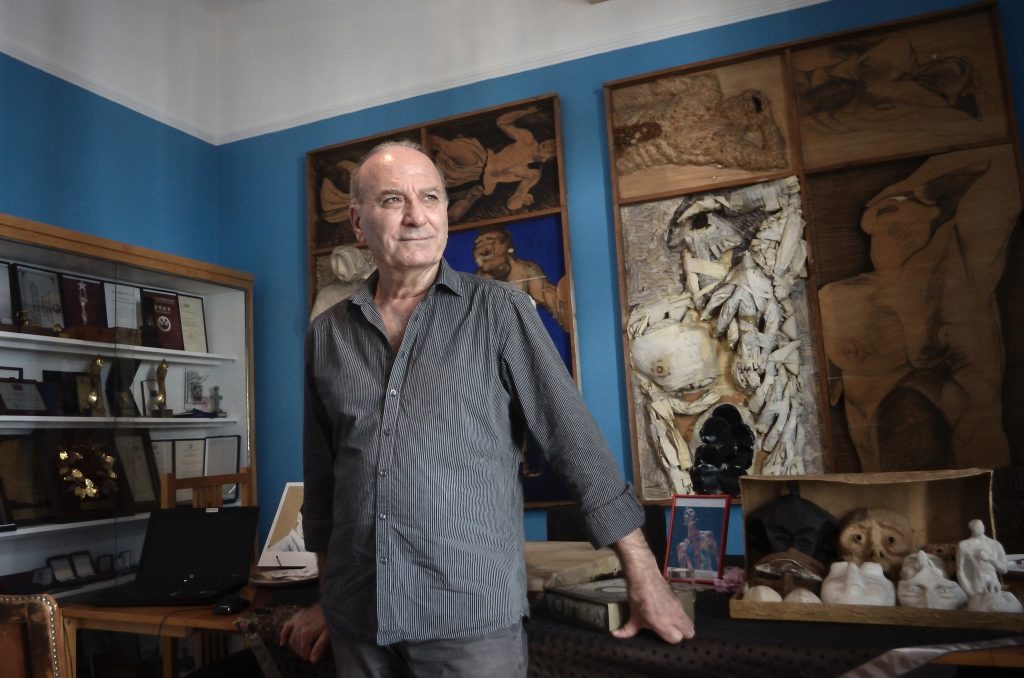
Born in Northern Greece, Theodoros Terzopoulos is an internationally recognized theatre director, educator, and author. He is the founder and artistic director of the Attis Theatre Company and the inspirator of the Theatre Olympics. Terzopoulos also serves as chairman of the International Committee of the Theatre Olympics and is a founding member of the International Institute of Mediterranean Theatre.
As a prominent director of ancient Greek tragedy, Terzopoulos revolutionized the presentation of Greek drama with his groundbreaking 1986 performance of Euripides’ Bacchae, introducing extreme physicality and ritual. His approach, based on Dionysian ecstasy, has shaped contemporary theatre practice and is taught in over thirty drama academies worldwide.
His latest productions, including Waiting for Godot (2023) and Aeschylus’ Oresteia (2024), have been hailed as milestones in theatrical history. Oresteia, staged by the National Theatre of Greece, is already considered a historical performance and will be repeated this year as the closing performance of the 2025 Athens Epidaurus Festival, marking its 70th anniversary.
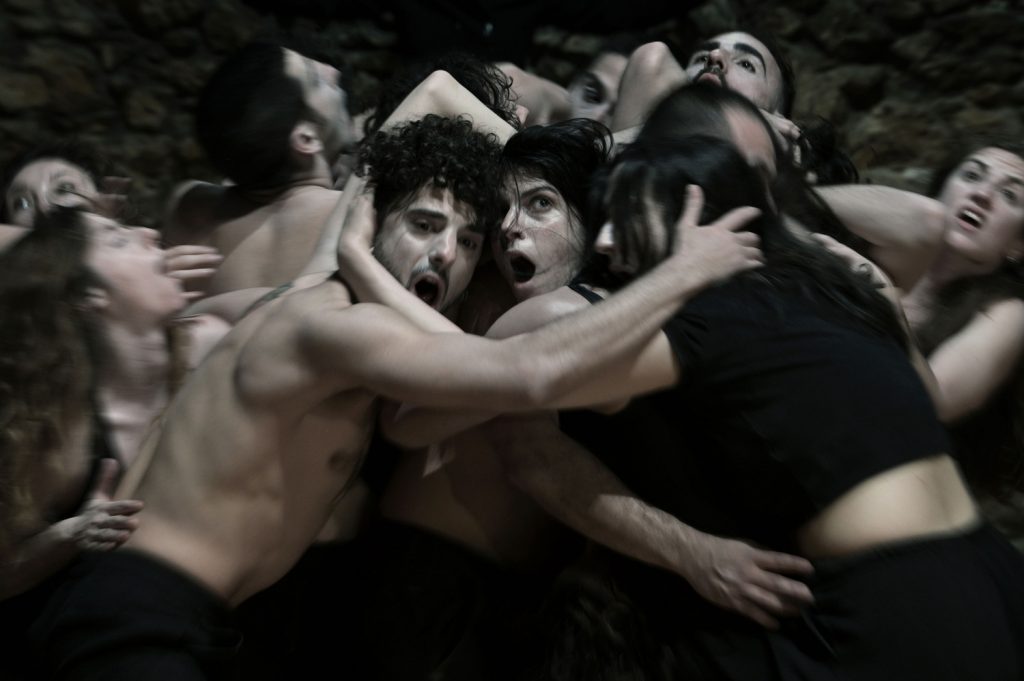
Theodros Terzopoulos “Oresteia”, National Theater of Greece
@Γιοχάνα-Βέμπερ
World Theatre Day Message 2025 by Theodoros Terzopoulos
Can theatre hear the SOS call that our times are sending out, in a world of impoverished citizens, locked in cells of virtual reality, entrenched in their suffocating privacy? In a world of
robotized existences within a totalitarian system of control and repression across the spectrum of life?
Is theatre concerned about ecological destruction, global warming, massive biodiversity loss, ocean pollution, melting ice caps, increasing forest fires and extreme weather events? Can
theatre become an active part of the ecosystem? Theatre has been watching human impact on the planet for many years, but it is finding it difficult to deal with this problem.
Is theatre worried about the human condition as it is being shaped in the 21st century, where the citizen is manipulated by political and economic interests, media networks and opinion- forming companies? Where social media, as much as they facilitate it, are the great alibi for communication, because they provide the necessary safe distance from the Other? A pervasive sense of fear of the Other, the different, the Stranger, dominates our thoughts and actions.
Can theatre function as a workshop for the coexistence of differences without taking into account the bleeding trauma? The bleeding trauma invites us to reconstruct the Myth. And in the words of Heiner Müller “Myth is an aggregate, a machine to which always new and different machines can be connected. It transports the energy until the growing velocity will explode the cultural field” and I would add the field of barbarity.
Can theatre spotlights shed light on social trauma and stop misleadingly shedding light on itself?
Questions that do not allow definitive answers, because theatre exists and endures thanks to unanswered questions.
Questions triggered by Dionysus, passing through his birthplace, the orchestra of the ancient theatre, and continuing his silent refugee journey through landscapes of war, today, on World Theatre Day.
Let us look into the eyes of Dionysus, the ecstatic god of theatre and Myth who unites the past, the present and the future, the child of two births, by Zeus and Semele, expresser of
fluid identities, female and male, angry and kind, divine and animal, on the verge between madness and reason, order and chaos, an acrobat on the borderline between life and death.
Dionysus poses a fundamental ontological question “what is it all about?” a question that drives the creator towards an ever-deeper investigation into the root of myth and the multiple
dimensions of the human enigma.
We need new narrative ways aimed at cultivating memory and shaping a new moral and political responsibility to emerge from the multiform dictatorship of the present-day Middle Ages.
Theatre Facts: Did You Know?
The Theatre of Dionysus in Athens is widely regarded as one of the oldest theatres in the world and the birthplace of theatre. Built on the south slope of the Acropolis around 500 BC, this ancient venue had a seating capacity of up to 17,000 people.
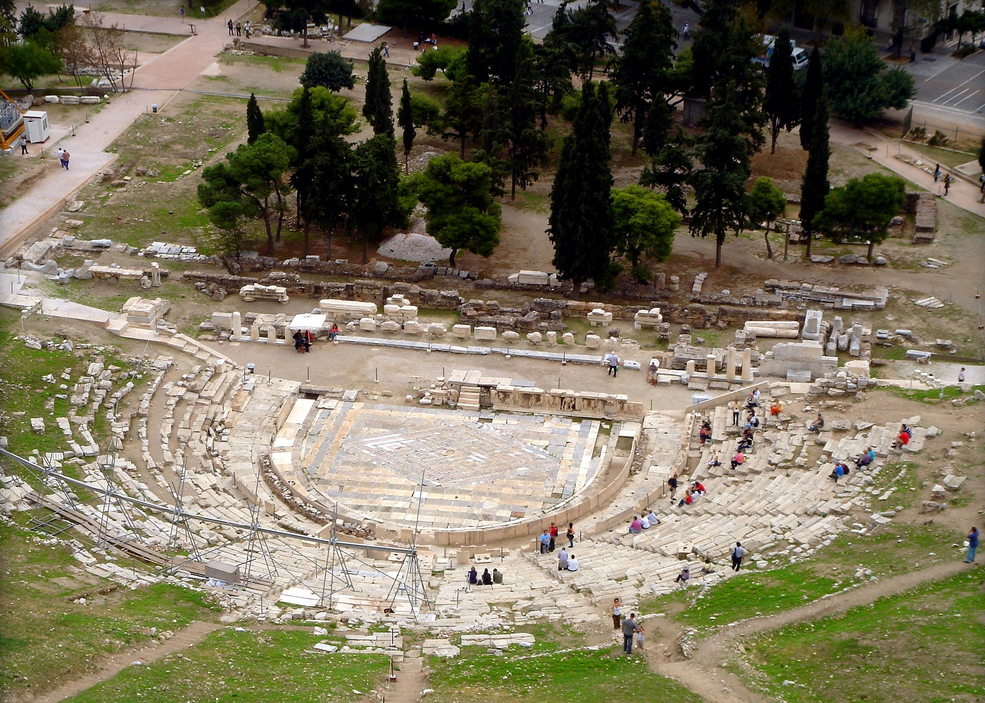
The Theatre of Dionysus hosted the Dionysia festival, a major event honoring Dionysus, the god of theatre and wine. This festival staged the works of Sophocles, Euripides, Aeschylus, and Aristophanes—some of the greatest playwrights of all time.
According to tradition, the first recorded performance of tragedy at the Dionysia was by Thespis in the 6th century BC. Ancient sources, including Aristotle, credit Thespis as the first actor to step onto the stage and perform as a character rather than speaking as himself—giving rise to the word “thespian” to describe actors today.
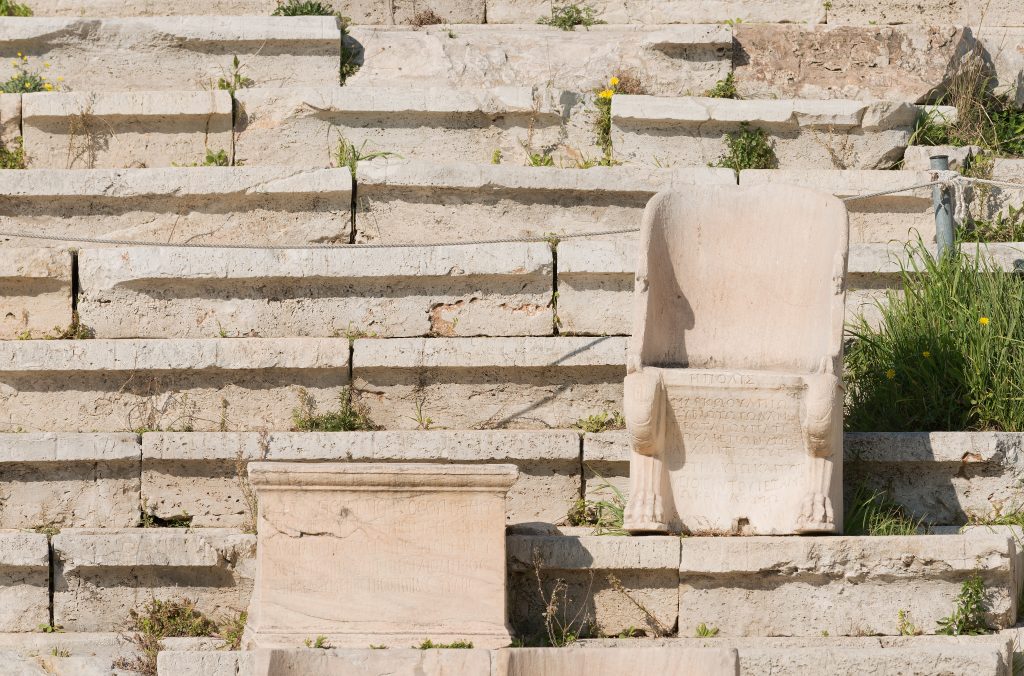
The Athens Epidaurus Festival, which celebrates its 70th anniversary this summer, is one of Europe’s longest-running theatre festivals. One of its most iconic venues, the Ancient Theatre of Epidaurus, is a UNESCO World Heritage site famous for its perfect acoustics and stunning aesthetics.
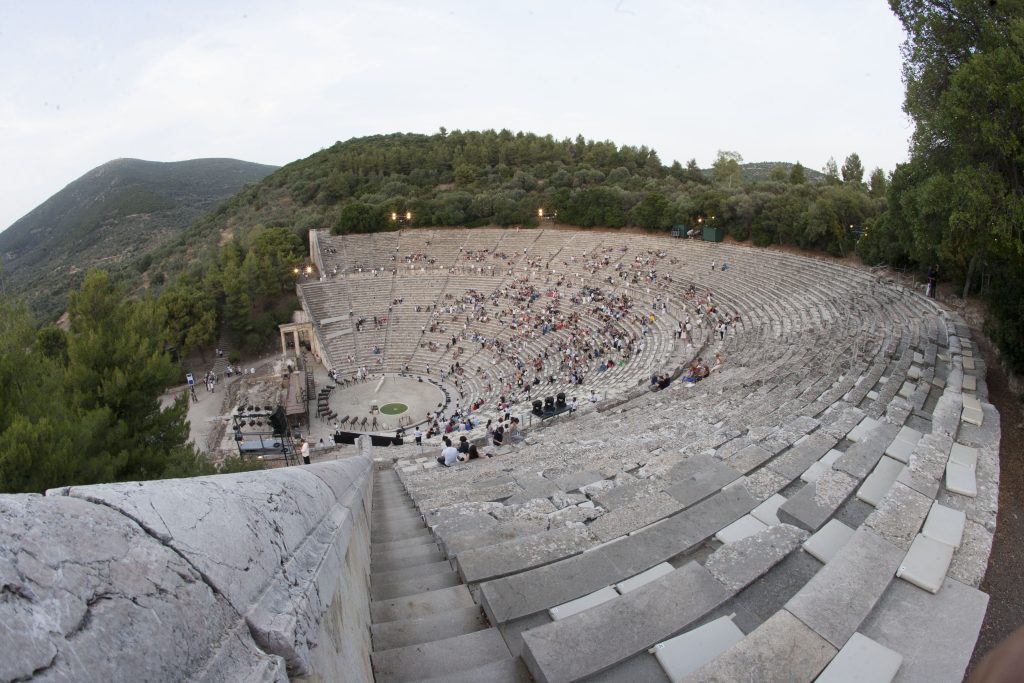
Aristophanes in The Knights by the National Theater directed by Konstantinos Rigos, Athens – Epidaurus Festival, Ancient Theater of Epidaurus, on June 25, 2021.
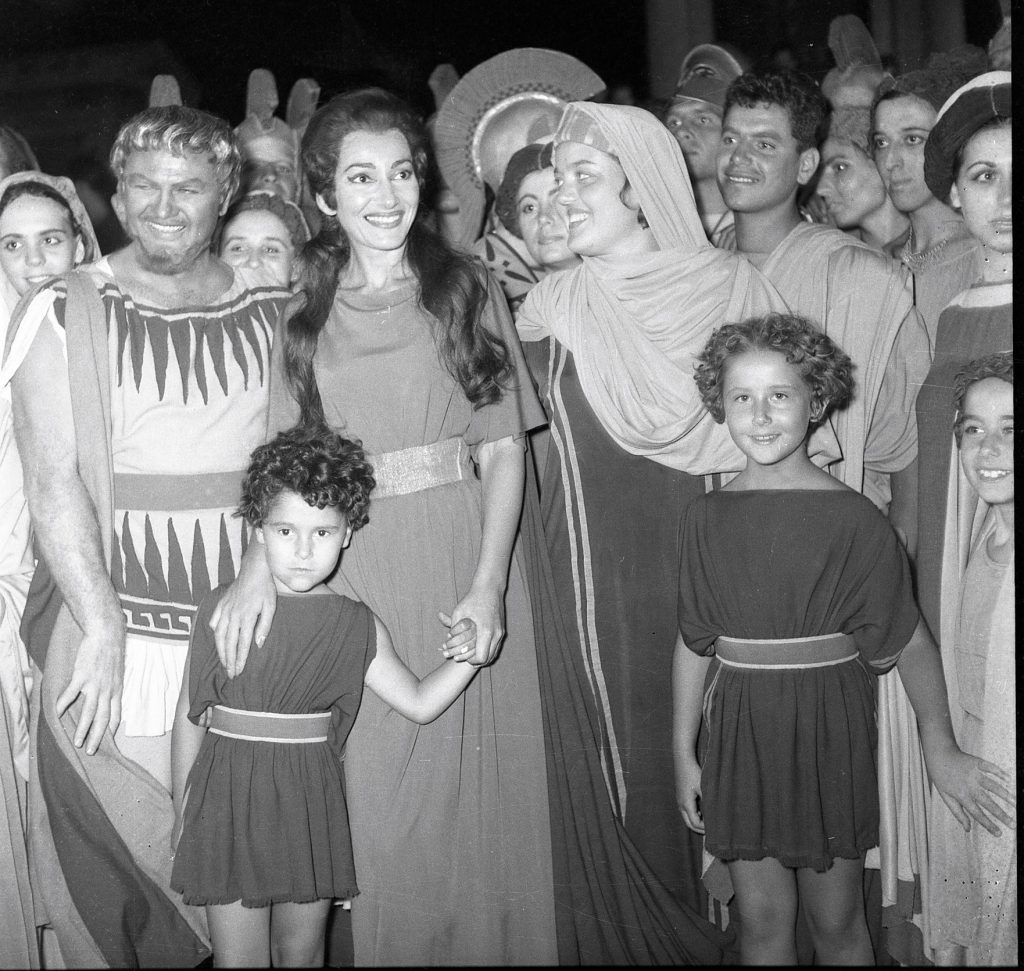
GNO Medea Callas, Morfoniou 1961 Epidaurus – photo Kleisthenis, GNO Archive
A 2021 study by Statista ranked Paris as the city with the most theatres worldwide (287), followed by London (204) and New York (182).
